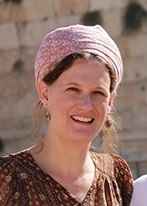
Tzilla earned her MA and PhD in archaeology at the University of Haifa. Focusing on silver hoards from the Bronze and Iron Ages of the Southern Levant, she traced developments in the usage of silver as a pre-monetary means of exchange, and in silver ore sources and trade routes from the ores to the region. She received the Rector’s Award for her outstanding MA thesis. Her recently submitted PhD dissertation is interdisciplinary, combining methods from earth sciences (chemical and isotopic analysis), archaeometallurgy, and archaeological disciplines.
This combination of chemical analysis and high-resolution chronology revealed otherwise unknown developments in the trade and usage of silver, including the earliest maritime endeavors of the Phoenicians to the Western Mediterranean. Tzilla’s research was supported by a Gerda Henkel Foundation grant awarded to her supervisors, Prof. Ayelet Gilboa of the Department of Archaeology at the University of Haifa and Prof. Yigal Erel of the Institute of Earth Sciences at The Hebrew University of Jerusalem, and she herself received a Rotenstreich scholarship. Tzilla carried out her lab work in the geochemistry lab of Prof. Yigal Erel and the archeometallurgical lab supervised by Dr. Na’ama Yahalom-Mack in the Department of Archaeology at The Hebrew University.
Tzilla received a Rothschild Fellowship for postdoctoral research abroad, but, unable to travel this year, she is looking forward to continuing her scientific journey at Ariel University. In the Department of Archaeology, she will work with Dr. Adi Eliyahu on the development of iron and steel production under the Assyrian, Babylonian, Persian, Hellenistic and Roman Empires in the Southern Levant (~730 BCE – 324 CE). Together, they will investigate technological developments in iron and steel production, with an emphasis on metallographic analyses of utilitarian (agriculture and warfare) iron objects dating to these periods, assessing the skills, knowledge and control of steel-making processes by the ancient blacksmiths.